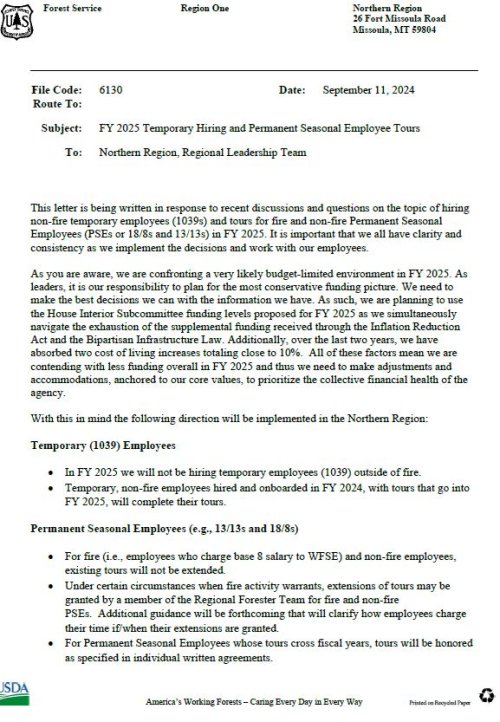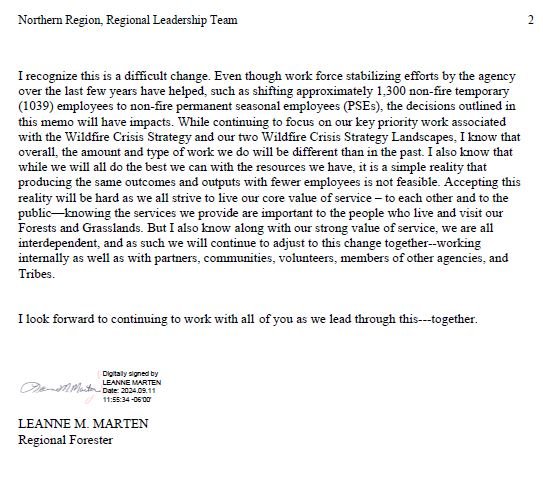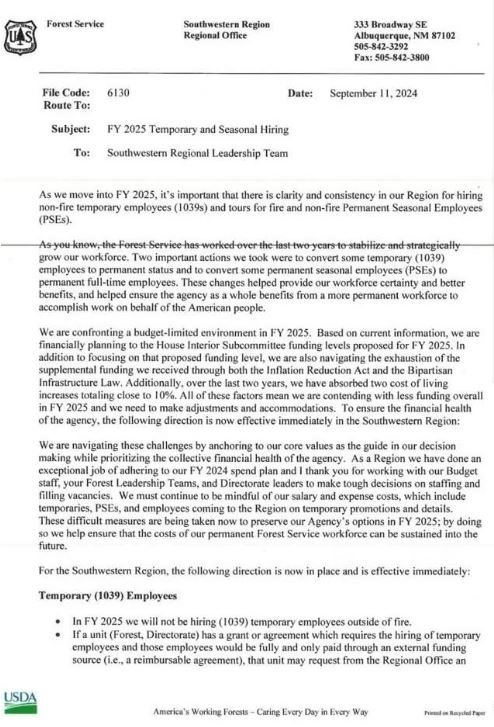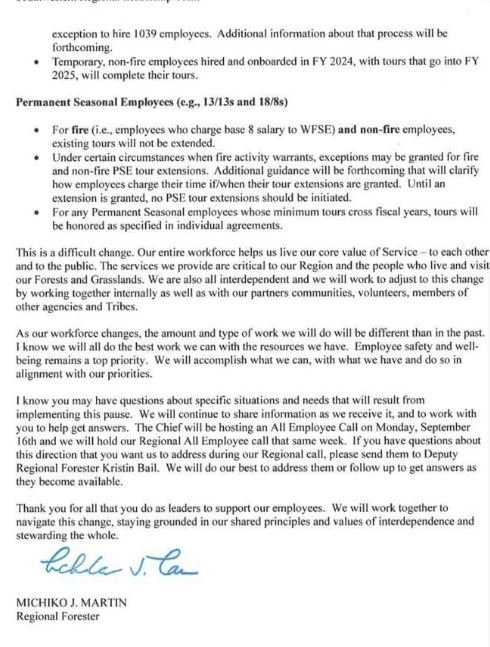sapperJ24
Well-known member
Looking at 2025, and possibly beyond, the US Forest Service is facing a significant decrease in available funds from recent levels. Some of this is due to supplemental funds expiring, some due to stagnation of appropriated funds while costs and expenses have increased, and others due to some changes in the make up of the workforce and resultant overspending. I'm confident many people would agree that often the government spends in excess and is inefficient with the funds they receive, however I'm also confident that many here will also be disappointed in the ramifications of this budget shortfall.
To address the lack of requested funding, the Forest Service (at least in Regions 1 and 3) will not hire temporary seasonal (1039) employees. The Forest Service has made some recent changes to convert some temporary 1039s to permanent seasonal employees. 1039s and seasonals have long been responsible for accomplishing vast majority of the field work facing the Forest Service. Often these employees have been college students or others that cover the busy seasons. Some regions are also freezing all outside hiring and current professional vacancies will remain in place.
This reduction in temporary workforce will directly result in at least the following:
- less timber sales marked and cruised
- inability to survey future project areas for analysis
- reduced ability to service trailheads and facilities and roads
- reduction in trails cleared and rehabilitated
- reduced ability to process requests are permits
- decreased visitor services including, map sales and area information
- delays of project implementation burdening partners
In addition to these immediate impacts, and most concerningly, the overall reduction in public services provided may result in a future deterioration of appreciation for our federal public lands.
Best of luck on the upcoming season.
edit - Regions 5 and 6 issued similar memos today.
To address the lack of requested funding, the Forest Service (at least in Regions 1 and 3) will not hire temporary seasonal (1039) employees. The Forest Service has made some recent changes to convert some temporary 1039s to permanent seasonal employees. 1039s and seasonals have long been responsible for accomplishing vast majority of the field work facing the Forest Service. Often these employees have been college students or others that cover the busy seasons. Some regions are also freezing all outside hiring and current professional vacancies will remain in place.
This reduction in temporary workforce will directly result in at least the following:
- less timber sales marked and cruised
- inability to survey future project areas for analysis
- reduced ability to service trailheads and facilities and roads
- reduction in trails cleared and rehabilitated
- reduced ability to process requests are permits
- decreased visitor services including, map sales and area information
- delays of project implementation burdening partners
In addition to these immediate impacts, and most concerningly, the overall reduction in public services provided may result in a future deterioration of appreciation for our federal public lands.
Best of luck on the upcoming season.
edit - Regions 5 and 6 issued similar memos today.
Attachments
Last edited:








